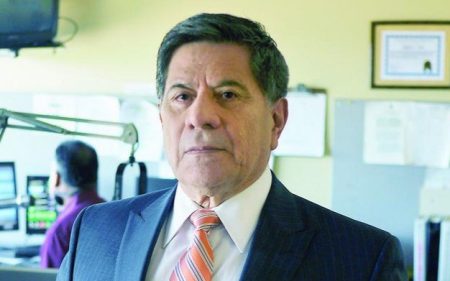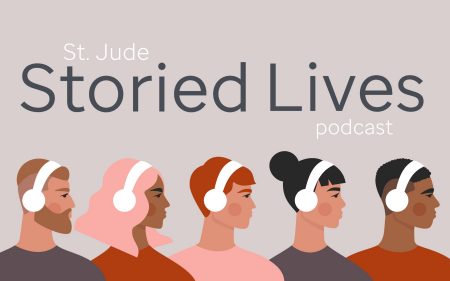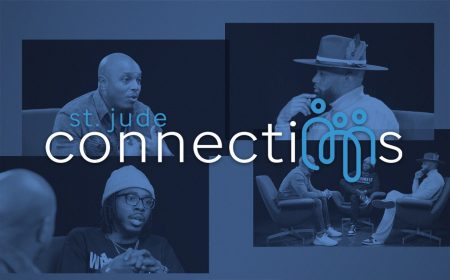
St. Jude Global Alliance member supports improved cancer treatments for children in Guatemala
The AYUVI foundation sees a reduction in treatment abandonment rates as more children survive the disease.

July 31, 2025 • 5 min

Español | English
August 19 is Paula's birthday. But in 2024, it also became a day that marked a turning point in the life of her entire family.
Paula hadn't made big plans because she had been at the hospital for two days straight with her youngest daughter, Ana Cristina. Her little girl had been admitted after experiencing joint pain following a hip injury during gymnastics practice. Ana Cristina, then 8, had received treatment for a month and half, but was still in pain.
“It was precisely August 19 when we were told she had acute lymphoblastic leukemia,” Paula recalled.

Donald, Ana Cristina's father, was leaving work when he received the devastating news.
“It was very hard because all you see at that moment is a dark path ahead,” said Donald.
Ana Cristina had always been a very active girl. She showed great interest in sports since she was little, her dad said. At school, she stood out for her good grades and for being very sociable. Additionally, her dad said she ate very healthily. She loved fruits and vegetables and sipped a lot of water, Donald said.
But things were now very different. Ana Cristina was hospitalized. Her hospital stay lasted 33 days at the Unidad Nacional de Oncología Pediátrica (UNOP) in Guatemala City, also known as the National Pediatric Oncology Unit in Guatemala City. The family was told chemotherapy had to start as soon as possible.
But Ana Cristina's parents did not have the money to cover the cost of the treatment. On average, families in Guatemala earn around $250 a month, and childhood cancer treatment can average $60,000 there.
“Many things went through our minds — like selling the house we live in — to take out a loan,” Paula said.

An unexpected offer to cover the costs of treatment would soon allay their worries. A staff member of the Ayúdame a Vivir (AYUVI) Foundation in Guatemala, which is dedicated to raising funds to provide free comprehensive treatment to pediatric cancer patients in the Central American country, reached out to share the news. The foundation's name translates to "Help me live."
When it comes to pediatric cancer care, “We commit ourselves to ensuring that families lack nothing, whether they have health insurance or not; we absorb all the costs,” explained Andrea Mérida de Dios, AYUVI's Communication and Marketing Coordinator.
This kind of support is made possible by AYUVI’s deep commitment to families, strengthened through its partnership with the St. Jude Global Alliance — worldwide initiative of St. Jude Children’s Research Hospital® that launched in December 2018 to connect institutions working to improve care and survival rates for children with cancer and other catastrophic diseases.
St. Jude efforts in Guatemala date back to 1996, when the St. Jude International Outreach Program helped establish adapted treatment guidelines for pediatric cancer. AYUVI was founded a year later. St. Jude support for efforts in Guatemala were fortified following the creation of St. Jude Global in 2018.
Both AYUVI and UNOP are members of the St. Jude Global Alliance, which helps foundation members such as AYUVI to optimize their fundraising through training and institutional members build capacity to provide effective care and treatment, among other initiatives. With the help of the St. Jude Global Alliance, the foundation has been able to provide more training and tools for the AYUVI team to fundraise to support the UNOP clinical staff’s ability to affect patient outcomes.
“We were only three pediatric hematologist-oncologists for all the patients,” said Dr. Federico Antillon, medical director of UNOP and a former St. Jude fellow. By 2024, he said, the number of specialists had grown significantly, with 40 colleagues trained across the Central American region.

Hospital members of the St. Jude Global Alliance such as UNOP receive access to registries, assessment tools and platforms, training and a range of other resources and activities meant to transform global pediatric health. Together, AYUVI and UNOP have improved treatments to increase survival rates for children. They have also successfully reduced the abandonment rate, which refers to the number of patients who do not complete their treatment.
“It has a great impact that helps us be better. For example, we have managed to reduce the treatment abandonment rate from 42% to less than 2%,” said Mérida de Dios.
That progress is the result of a comprehensive program developed through the partnership between AYUVI and UNOP, designed to support families every step of the way. This partnership also provides palliative care when needed.
“Our palliative team has been involved since the beginning,” said Antillon.
For Donald and Paula, it was “a great relief” to know they wouldn't have to deal with the financial burden.
“You would think that fighting leukemia is the main thing, but then a lot of other issues come up where we have also seen unconditional support,” said Donald. AYUVI has been providing them with support from social workers, as well as assistance from psychologists, nutritionists and other professionals throughout the treatment.
“We haven't felt alone.”
A living legacy
Mérida de Dios gets emotional when reflecting on how AYUVI has transformed and expanded the care many pediatric cancer patients receive in her country. She said that her strong commitment to the families who come to the foundation for help was learned at home.

Her mother, Gloria de Dios, led by example by helping. As executive director, Gloria led the foundation for two decades. She began her work at AYUVI in 2005, when the organization was raising less than $200,000 (less than 1.5 million Quetzales). During her leadership, fundraising skyrocketed to $11 million, and private-public partnership helped increase the survival rate in the foundation-supported UNOP clinic from 20% to 70%. Gloria described AYUVI as “a mini-St. Jude”.
Gloria de Dios saw hope for pediatric cancer at St. Jude during one of her visits to the research hospital located in Memphis, Tennessee. “When you look into the eyes of St. Jude doctors, you see that there is no doubt in them that they will continue. That comforts you and makes you feel that you can keep fighting and reach that point where no child will die for lack of resources.”
Today, AYUVI helps kids throughout Guatemala and has managed to expand. The first extension was named AYUVI Occidente, an outpatient clinic located in Quetzaltenango, which serves 38% of the organization's patients treated at the UNOP hospital. The next project in that area of the country will be the creation of a housing facility for patients and their families who must travel several hours by road to receive treatment.
Due to the great ethnic and linguistic diversity in Guatemala, AYUVI has interpreters and a whole system of signage in its facilities so that families who speak indigenous languages can obtain the necessary resources. Currently, the Guatemalan government recognizes 25 languages in its territory: Spanish, Xinca, Garífuna, and 22 others of Mayan origin.
Despite encouraging progress over nearly three decades, “we still have a lot to do,” said Mérida de Dios, emphasizing that the foundation currently serves approximately half of the children diagnosed in the country.

‘A hug to the heart’
Today, Ana Cristina continues her treatment at home, regularly attending exams and undergoing medical monitoring. Her parents said that their daughter has strong faith in her future, and they are committed to supporting her throughout her journey.
“She has her own dreams: She wants to return to gymnastics or some other sport because she is aware of her situation,” said Paula.
What’s more, she tells me, ‘Mom, I will see what kind of sport I can practice later.’ But she also says she wants to be a neonatologist and have many Chihuahua puppies.”
This family says they allow themselves to keep dreaming today thanks to all the support received from AYUVI.
“Knowing that many people are concerned or aware of us while we are going through this experience increases our faith,” Donald said.




















